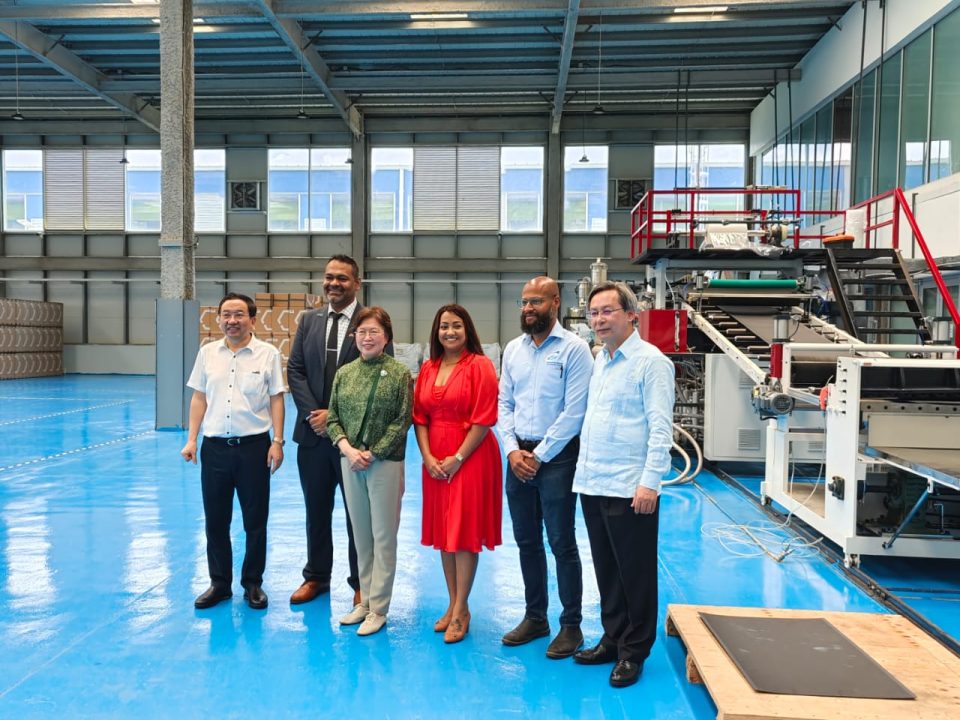Tamana InTech Park, the Caribbean’s premier Science and Technology Park, comes alive later this year as the single most important initiative to date by Trinidad and Tobago in the quest to transform the national economy away from its historic dependence on oil and gas. As a home for technology -based and knowledge-based firms in the non-energy sector, the excitement over Tamana InTech Park as a key plank in Trinidad and Tobago’s diversification strategy, is undoubtedly rising.
Firing on all cylinders, the public and private sectors are pulling together a co-ordinated effort towards economic diversification. While this goal has been on the national agenda since the 1960s, the global crisis of 2008-09 has refocused the thinking of petroleum-dependent countries- including Trinidad and Tobago- infusing their diversification efforts with a greater sense of purpose and urgency.
For Angela Hordatt, Vice President of e TecK’s Business Development Division, the time is ripe and the moment is now: “All parties are recognizing the need to fast-track a more coordinated approach to making economic diversification a reality. We are moving from an economy based on commodities – based on our natural resources – to an economy with products originating from our brainpower. It is a significant shift! Diversification has to be then more than just a buzz word or the phrase de jour. It requires a genuine partnership among all major stakeholders – government, business and academia. e TecK will continue to work side by side with the private sector and with other institutions on raising awareness, building action plans and innovating.”
The message is getting through. At the Trinidad and Tobago Chamber of Industry and Commerce, Chief Executive Officer Catherine Kumar says the private sector has put economic diversification on the front burner and is prepared to walk the talk of economic diversification. On March 15th, the Chamber hosted a ‘kick-start’ dinner to explore ideas on a “Diversification through Innovation Roundtable” as a forum for collaboration among interest groups, including research and academia, business, and the public sector. Its objective, she explains, is to brainstorm on the requirements for blending interests and creating new viable and sustainable niche sectors. The Chamber intends to build at least two commercially successful non-energy business projects based on the findings of a study that it commissioned from CAP-M Research titled Complementing the energy sector in T&T: The road to economic diversification. A copy of the study was given to the Minister of Finance last July as the Chamber’s submission for the 2009/2010 Budget.
Political commitment, according to the Chamber CEO, is another critical success factor necessary for meaningful progress to occur in the development of this country’s non-energy sectors: “…political will with a clearly defined mandate is necessary to accelerate the pace of diversification in this country,” says Mrs. Kumar. “Once there is that will – once Government is serious to facilitate the process – once there is a mandate to create an enabling environment to encourage private sector investment into non-energy sectors – things will fall into place. Political will is therefore key in fast tracking the diversification process.”
Indeed, significant initiatives in the last six months signal a sea change in this Government’s diversification commitment and momentum. Last October, the Ministry of Trade took a major step forward with the launch of the Single Electronic Window (SEW), an IT-based one-stop shop where local firms and Foreign Direct Investors can lodge standardized information and documents at a single entry point in order to fulfil all regulatory, import, export and transit-related requirements. It reduces the cost of doing business in this country and makes T&T products and services more globally competitive. The rekindling, in March of this year, of Government’s Standing Committee on Business Development is yet another example. An advisory committee mandated to drive business development in Trinidad and Tobago, its main focus is to identify and prioritise areas for development in the non-energy sector, foster an enabling business climate for these key sectors and ensure an integrated approach to implementing Government’s diversification agenda.
Like Trinidad and Tobago, oil and gas dependant economies such as Qatar and the United Arab Emirates have similarly employed diversification strategies that include, inter alia, public- private sector collaboration, FDI attraction and facilitation and investment in modernised infrastructure, including Science and Technology Parks.
|
What is a knowledge-based economy? A knowledge-based economy is one where the generation and utilization of knowledge contribute significantly to economic growth and wealth. In such an economy, information communication technology (ICT) is both an enabler of knowledge-intensive industries and an industry in its own right. Most importantly, it is a country’s human capital – the capacity of the population to create, innovate, generate and exploit new ideas, apply technology and exercise superior entrepreneurial skills- that sits at the cornerstone of the creation of a knowledge based economy. |
The common thread however in modern day diversification success stories as found in Ireland, Singapore, South Korea and Canada, is the ability of a country to transition from an economy based on commodities such as natural resources – to an economy based on the creation and trade of knowledge. At eTecK, Vice President Business Development, Angela Hordatt sees no reason why this country can’t duplicate the successes of Canada, in making that transition:
“In Canada, the economy was once highly based on natural resources of forestry, oil and gas and is now much better diversified. It took time, but just as our government is implementing through e TecK, Canada focused on the creation of knowledge-based industries. They started in the schools and universities because it is a culture change first and foremost – a change in the psyche. Then the government established incentives for desired industries so that SIEMENS (from Germany) and NOKIA (from Finland) were attracted and established there. Look at the Canadian company RIM, Research in Motion, a Canadian start–up funded with Canadian Venture Capital funds, now a global name. Last year, Fortune named RIM the fastest growing company in the world with a growth of 84% in profits over three years despite the recession.” RIM is a world leader in mobile communications and the company behind the Blackberry phone.
In Hordatt’s view, Trinidad and Tobago’s huge investment in education, including e-skills, which she describes as “the currency of the new global village”, will also help this country in its transition to an innovative, knowledge-based economy. “It is the youth of our nation who are taking to the e-world like ducks to water,” she declares, “these are the ones who will be at the “forefront of change.”




